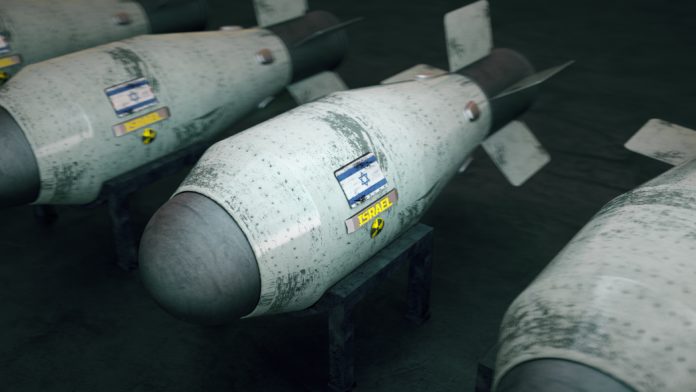The United Nations General Assembly has overwhelmingly backed a resolution urging Israel to give up its nuclear weapons and join the Nuclear Non-Proliferation Treaty (NPT).
During its meeting on Wednesday, 149 UN member nations voted in favour of the resolution and six (Canada, Israel, Micronesia, Palau, Liberia and the United States) voted against.
The United Kingdom abstained from the vote.
The resolution urges Israel “not to develop, produce, test or others acquire nuclear weapons” and to “renounce possession of nuclear weapons.”
It also called on Israel to accede to the NPT and to place all its nuclear facilities under the comprehensive International Atomic Energy Agency Safeguards.
The resolution was put forward by Palestine and 20 countries, including Israel’s allies in the Middle East such as Egypt, Jordan, Bahrain, Morocco, Sudan and the United Arab Emirates.
Israel is widely believed to possess nuclear weapons. Estimates of its stockpile range between 80 and 400 nuclear warheads and the country is believed to possess the ability to deliver them in several methods, including by aircraft, as submarine-launched cruise missiles, and via intermediate to intercontinental range ballistic missiles.
Subscribe to our newsletter and stay updated on the latest news and updates from around the Muslim world!
However, Israel maintains a policy of deliberate ambiguity, never officially denying nor admitting to having nuclear weapons, instead repeating over the years that “Israel will not be the first country to introduce nuclear weapons to the Middle East.”
Israel has also declined to sign the NPT despite international pressure to do so, saying that would be contrary to its national security interests.
Additionally, Israel developed a doctrine of counter-proliferation and preventive strikes, denying other regional actors the ability to acquire their own nuclear weapons.
Israel began to investigate the nuclear field soon after it declared independence in 1948 and, with French co-operation, secretly began building the Negev Nuclear Research Centre, a facility near Dimona housing a nuclear reactor and reprocessing plant in the late 1950s.



















